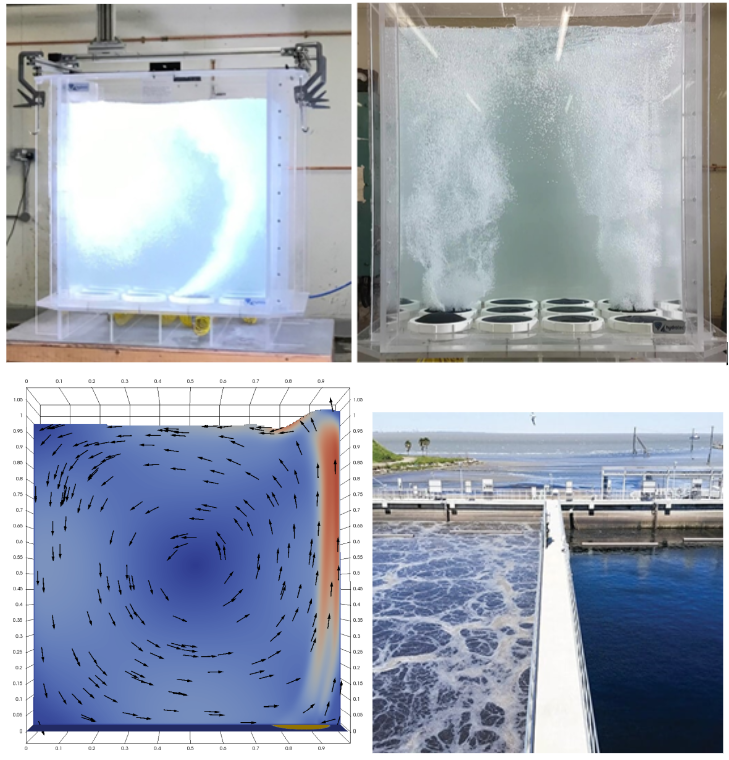Recovery and reduction of energy from wastewater through coupling hydrodynamics and biological growth models
- Academic lead
- Duncan Borman, School of Civil Engineering, d.j.borman@leeds.ac.uk
- Co-supervisor(s)
- Amir Khan, School of Civil Engineering, A.Khan@leeds.ac.uk, Gareth Keevil, School of Earth and Environment, G.M.Keevil@leeds.ac.uk, Mohsen Besharat, School of Civil Engineering, M.Besharat@leeds.ac.uk
- Project themes
- Energy and Transport, Environmental Flows, Industrial Processes
Wastewater treatment processes have high energy costs and are challenging to optimise due to the complex coupled processes occurring. Over 10 billion litres of sewage are produced every day in England and Wales; taking over 6.3 gigawatt-hours of energy to treat (~1% of the average daily electricity consumption). Many of the processes take place within various shape and scale bio-reactors. Within these reactors rheology, rates of mixing, temperature and the relative concentrations of nutrients and bacterial organisms vary over time; these changes have an impact on the rate and performance of the process. There are complex models to account for the biokinetic processes occurring over time; however current models typically assume that these processes take place in homogeneously mixed reactors. This is often not the case, and it can provide a significant restriction in the design of new plants. Having recently shown that we can couple realistic flow behaviour with the biokinetic processes, this PhD project will develop the coupled modelling framework for processes associated with recovering energy from wastewater processes. The research will develop the model such that more reliable predictions for growth rates can be obtained; providing potential opportunities to optimise or scale-up a range of processes.

